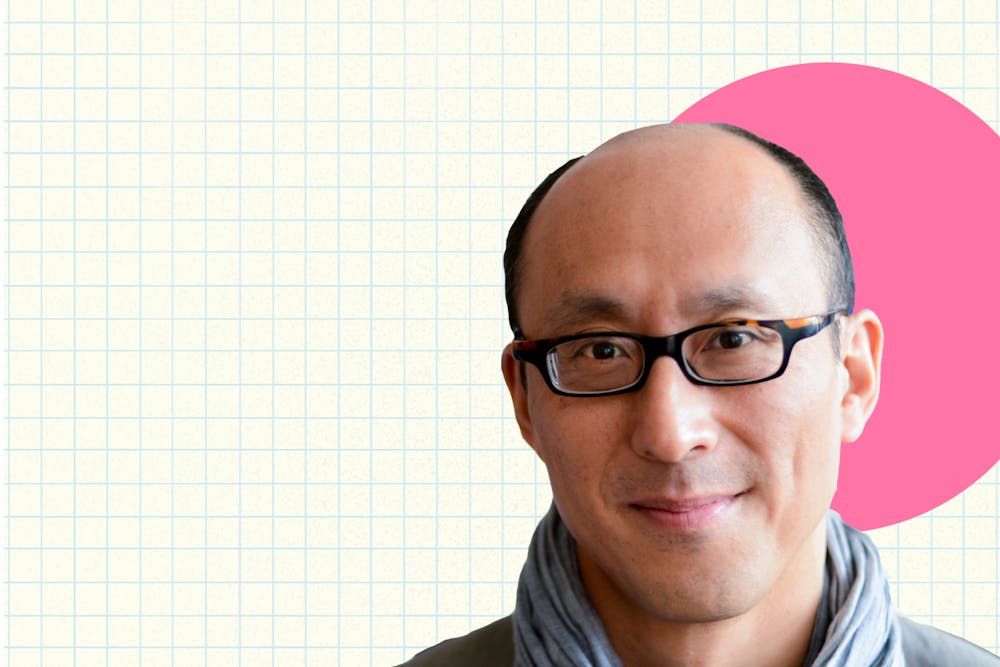In the spring of my sophomore year, I enrolled in David Eng’s “Introduction to Literary Theory” class. I knew nothing about Eng, and next to nothing about literary theory, but had begun pivoting towards a major in literature and area studies.
This would be my fourth attempt to choose a major — like many fellow students, I struggled to find my place at Penn. I’d tried out many different departments and dabbled in multiple student groups, searching for an answer to the lingering alienation I felt. Throughout, I chided myself for this feeling, reasoning that I had no right to struggle — being at Penn at all was a privilege beyond anything my refugee father would ever have dreamed.
From the moment Eng entered the classroom, I felt something shift. This professor carried himself with grace and gravity; I could tell he’d demand our best, but sensed he had much to offer us in return.
I was right. For a semester, Eng gave generously from his wealth of knowledge in the fields of Asian American studies, critical theory, queer theory, and more. By pushing us to grapple with ideas of race, power, and gender, Eng not only changed the way I saw the world, but gave language to my long-suppressed feelings of displacement.
In Eng’s class, the parts of me that were normally erased or dismissed — my hybrid ethnicity, my diasporic roots, my queerness — were given space to unfurl in all their messy, rich complexity. I could see similar revolutions taking place in fellow students, and in friends of mine who took other courses with Eng. Many of them were of Asian and Pacific Islander descent. Many were part of the LGBTQ community. Many of them had never heard their communities spoken of with such clarity and power. They felt seen. We felt real.
Such experiences are what the idealized liberal arts education should entail. The best universities should be places of bold, even radical, inclusion — places where voices that are marginalized, misunderstood, and devalued in the “mainstream” are empowered to speak and lead.
In such a place, a field like Asian American studies would not only be supported, but encouraged to expand and thrive. Professors like Eng would be protected as a precious asset — or, better, as a valuable and esteemed human being.
Instead, Penn is imperiling its Asian American Studies Program, one of only two such programs in the Ivy League, at a moment of escalating violence and racism against the AAPI community.
Eng, who is one of only three remaining tenured professors in the program, is slated to leave in just a few weeks. The circumstances of his departure, which come after a long and fruitless negotiation with the University to accommodate his partner, has ominous echoes of Grace Kao’s decision to leave Penn for Yale just a few years ago. Kao, the former director of the program, also cited a lack of institutional support for Asian American Studies, despite years of lobbying for more resources and classroom space.
Surely, the University will have a bureaucratic argument for the way it has failed its Asian faculty and students — but technicalities cannot mask the larger message. Budget and hiring decisions are not objective — they are signals of priorities and statements of values. The neglect suffered by the Asian American Studies Program mirrors the way that the AAPI community at large is too often erased or dismissed. The fact that Eng is being denied accommodations that are frequently granted to straight couples raises similar alarms.
These erasures also contribute to a greater mental health burden for students in the AAPI community. As Eng himself has noted in his work, despite the myriad emotional and mental burdens they face, Asian students are far less likely than white students to seek mental health support until they are in a state of severe distress (while Black and Latinx students are unlikely to seek such help at all). Faculty of color may be one of the few points of intervention for such students, making their presence all the more critical. (I worked with Eng on my senior thesis, and he was the only professor who consistently asked me about my well-being. During a particularly hard semester, it was his gentle concern that prompted me to seek counseling.)
The thought that Penn will lose such a remarkable individual — and one-third of the ASAM program’s remaining tenured faculty — enrages me on behalf of the future students who will have fewer opportunities to learn from an Asian professor, and fewer opportunities to study the rich history of the AAPI community. Such opportunities are critical not only for students within the AAPI community, but for those outside of it, too. If the recent spike in anti-Asian hatred has anything to teach us, it is that we need vastly more representation and appreciation of the AAPI community in this country.
Penn prides itself on being a leading institution of higher learning, but such a reputation demands Penn take on the responsibility of leadership. Abandoning Asian and LGBTQ faculty and allowing Asian American Studies to erode are precisely the opposite: a step backwards that is beneath the ideals of the University and the very project of academia.
SARAH AZIZA is a writer and 2014 College graduate currently living in New York. Her email is sarahazizawriter@gmail.com.









